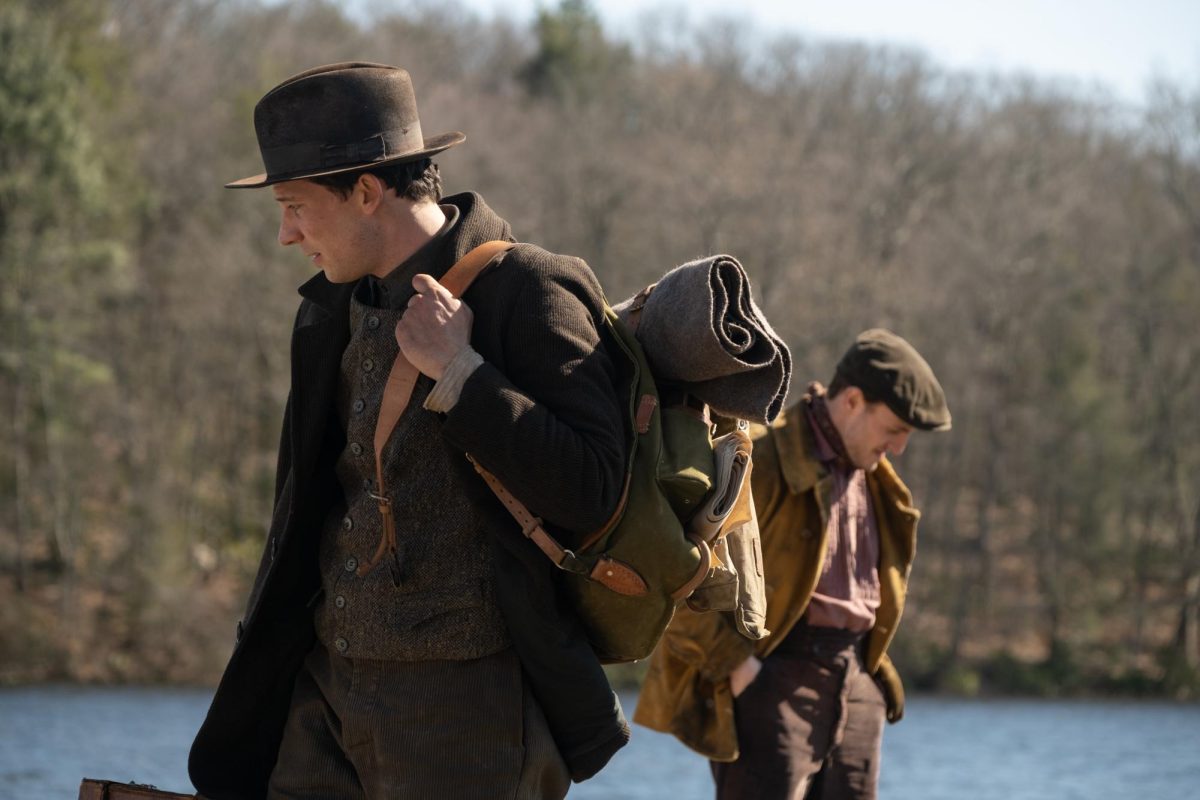Hollywood loves to cast its white boys of the month in queer dramas. Ever since the 2005 release of “Brokeback Mountain,” casting directors have tried to recapture the lightning-in-a-bottle performances of Heath Ledger and Jake Gyllenhaal. But in today’s world, when two leads are conventionally attractive and adored by the masses, the projects they’re attached to aren’t defined by much else.
The newest victim of this phenomenon is “The History of Sound,” a drama based on Ben Shattuck’s short stories of the same name. In the film, Lionel (Paul Mescal) and David (Josh O’Connor) are two musicians that meet at the New England Conservatory of Music in the midst of World War I. Mescal and O’Connor give strong performances — as they normally do — but the film struggles to maintain an identity outside of the top-billed names.
It’s established early on that Lionel and David come from starkly different upbringings. Lionel is a voice student who grew up in a shack in rural Kentucky, learning folk songs from his father on their porch. Ethnomusicologist David was orphaned and then taken in by his wealthy uncle, with whom he traveled the English countryside, collecting music on wax cylinders. One night at a local bar, Lionel serendipitously hears David playing a familiar folk song on the piano, and music brings the two together. Neither of them see each other’s face before interacting for the first time — it’s love at first listen.
A few years after their chance encounter, Lionel and David reconnect upon David’s return from fighting in the war. Folk music becomes the center of their bond once again when David asks Lionel to join his project recording songs around Maine. From there, “The History of Sound” tells a dual story of musical preservation and Lionel and David’s short but life-altering love.
Unlike “Brokeback Mountain” and similar queer dramas where protagonists battle repression, “The History of Sound” is admittedly a welcomed departure from the genre’s tropes. Lionel and David’s connection is instant and powerful, right from the moment David invites Lionel upstairs to his apartment and the two exchange songs well into the morning. Romantic scenes between the two are tender, whether they’re sharing a tent, glances or conversation.
Despite Mescal and O’Connor’s chemistry, the film doesn’t give them nearly enough screen time together. Lionel yearns for David throughout most of the film, and the plot emphasizes their physical distance. David’s at war or teaching in Maine, and Lionel’s stuck on the farm, miserable, lonely and suffocated by mundane tasks. Mescal makes the most of this distance and portrays Lionel’s longing with hardened gazes and subtle realizations that he’ll never find the same fulfillment he did in Maine.
The chief issue with “The History of Sound” is the imbalance between how Lionel and David are represented — O’Connor’s talents are underutilized, and David as a character is underdeveloped. The film is told from Lionel’s perspective, inherently limiting how much of David the audience actually sees. We watch David’s charisma and passion in scenes where he’s parsing through new music with Lionel or spitting water in his mouth. But the film rarely explores David’s underlying melancholy, a crucial element of the story that would have added necessary depth.
The most significant difference between Lionel and David isn’t where they grew up or their talents — it’s that David has experienced close deaths and Lionel hasn’t. This leaves a subtle, yet critical disconnect between the two. However, because of the film’s narrow perspective, this only comes to surface in blink-and-you’ll-miss-it moments and one scene where David collapses under the weight of his trauma. This leaves Lionel — and the audience — struggling to understand David’s underlying melancholy. O’Connor makes the most of these limited scenes with his glassy-eyed gazes and matter-of-fact musings about death: “Everyone you know is going to die,” he says.
The point of David’s project in “The History of Sound” is to ensure the posterity of unrecorded folk music in Maine. It’s an effort to preserve sound where he can’t preserve love, but this comparison only works when both sides are equally represented. Unless you’re one of the viewers who is desperate to see O’Connor spit into Mescal’s mouth, you’re better off just reading Shattuck’s short stories.
Contact Dani Biondi at [email protected].

























































































































































